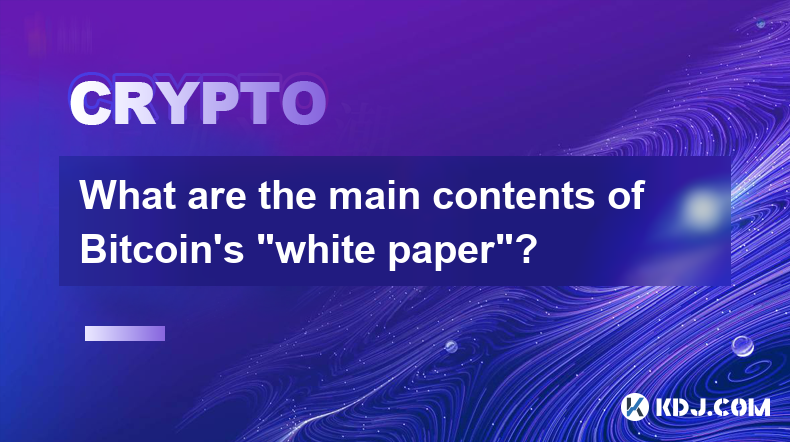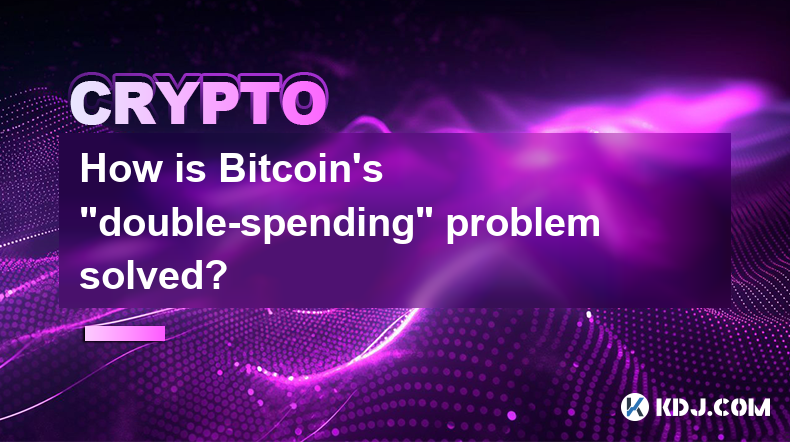-
 Bitcoin
Bitcoin $92,358.2066
-3.78% -
 Ethereum
Ethereum $2,514.7602
-9.86% -
 Tether USDt
Tether USDt $0.9997
-0.05% -
 XRP
XRP $2.3198
-9.01% -
 BNB
BNB $615.1517
-5.58% -
 Solana
Solana $141.5976
-13.50% -
 USDC
USDC $0.9999
0.00% -
 Dogecoin
Dogecoin $0.2129
-10.09% -
 Cardano
Cardano $0.6902
-9.30% -
 TRON
TRON $0.2423
-1.03% -
 Chainlink
Chainlink $15.3578
-11.56% -
 Stellar
Stellar $0.3026
-7.89% -
 Avalanche
Avalanche $21.9097
-10.49% -
 Sui
Sui $2.8963
-13.71% -
 Litecoin
Litecoin $116.0955
-8.81% -
 Toncoin
Toncoin $3.4452
-8.48% -
 Hedera
Hedera $0.1998
-4.22% -
 Shiba Inu
Shiba Inu $0.0...01392
-8.66% -
 UNUS SED LEO
UNUS SED LEO $8.8000
-9.83% -
 MANTRA
MANTRA $8.2347
-1.71% -
 Polkadot
Polkadot $4.4422
-9.05% -
 Hyperliquid
Hyperliquid $19.7104
-13.10% -
 Ethena USDe
Ethena USDe $0.9999
-0.03% -
 Bitcoin Cash
Bitcoin Cash $296.1569
-8.43% -
 Bitget Token
Bitget Token $4.7267
-6.13% -
 Dai
Dai $0.9998
-0.02% -
 Uniswap
Uniswap $8.0773
-9.39% -
 Monero
Monero $230.9033
-2.23% -
 NEAR Protocol
NEAR Protocol $3.0560
-9.30% -
 Bittensor
Bittensor $404.0531
-4.16%
What is the future prospect of altcoins?
Altcoin diversification offers growth potential, diversification options, and novel applications, but carries risks such as volatility, Bitcoin dependence, and fraudulent projects.
Dec 31, 2024 at 05:01 pm

Key Points:
Understanding Altcoins and Their Classification:
- Defining altcoins and their distinction from Bitcoin.
- Classification of altcoins based on their objectives, such as utility tokens, security tokens, privacy coins, etc.
Factors Influencing Altcoin Performance:
- Market sentiment, including FOMO, FUD, and investor confidence.
- Technological advancements and adoption within specific niches.
- Regulatory developments and their impact on altcoin trading.
Potential Benefits of Investing in Altcoins:
- Higher potential for growth compared to Bitcoin.
- Diversification options within a cryptocurrency portfolio.
- Novel use cases and innovative applications.
Risks Associated with Altcoin Investment:
- Volatility and price fluctuations leading to potential losses.
- Dependence on Bitcoin's performance.
- Fraudulent projects and "pump-and-dump" schemes.
Future Prospects of Altcoins:
- Continued evolution and innovation in the cryptocurrency space.
- Growing adoption and utilization of altcoins in various industries.
- Regulatory clarity and establishment of industry standards.
In-depth Discussion:
1. Understanding Altcoins and Their Classification
Altcoins encompass all cryptocurrencies other than Bitcoin, the pioneering digital asset. They represent a diverse and rapidly growing segment of the cryptocurrency market. Altcoins can be classified based on their primary objectives:
- Utility Tokens: These altcoins provide access to a specific platform or service, offering functionality within a particular ecosystem. Examples include tokens used for blockchain-based gaming, decentralized finance, and supply chain management.
- Security Tokens: These altcoins represent ownership or equity in a real-world asset, such as real estate, commodities, or artwork. They bridge the gap between traditional finance and the decentralized world.
- Privacy Coins: These altcoins prioritize transaction anonymity and privacy. They conceal the identities of sender and recipient, providing a higher level of confidentiality.
- Stablecoins: These altcoins are designed to maintain a stable value against a fiat currency or other reference asset. They aim to minimize volatility and provide a reliable store of value.
2. Factors Influencing Altcoin Performance
Multiple factors shape the performance of altcoins:
- Market Sentiment: Altcoins are largely influenced by the overall crypto market sentiment. Bullish periods characterized by positive investor sentiment can lead to price increases, while bearish periods with negative sentiment can result in price declines.
- Technological Advancements: Innovations and advancements within specific niches can drive demand for altcoins. For example, the rise of decentralized finance (DeFi) has fueled the growth of tokens facilitating various financial activities.
- Regulatory Developments: Clarity and certainty in regulatory frameworks can positively impact altcoin adoption and investor confidence. On the other hand, uncertain or unfavorable regulations can hinder the growth of altcoins.
3. Potential Benefits of Investing in Altcoins
Diversifying into altcoins offers several advantages:
- Growth Potential: Altcoins generally exhibit higher growth potential compared to Bitcoin, providing opportunities for substantial returns.
- Diversification: Investing in altcoins introduces diversification into a cryptocurrency portfolio, reducing the overall risk associated with holding only a single asset.
- Novel Use Cases: Altcoins offer a wide range of use cases, including decentralized applications, smart contracts, and blockchain-based technologies.
4. Risks Associated with Altcoin Investment
Altcoin investments come with potential risks:
- Volatility: Altcoins are inherently volatile, with prices fluctuating dramatically in both directions. Investors should be prepared for potential losses.
- Bitcoin Dependence: Altcoin prices often correlate with the price of Bitcoin. When Bitcoin experiences a downturn, altcoins typically follow suit.
- Fraudulent Projects: The cryptocurrency market has witnessed numerous fraudulent projects and scams. Investors should conduct thorough research before investing in any altcoin.
5. Future Prospects of Altcoins
The future of altcoins holds significant promise:
- Continued Innovation: Altcoin development is driven by ongoing innovation, creating new use cases and applications for blockchain technology.
- Growing Adoption: Altcoins are gaining wider adoption in various industries, including gaming, finance, and supply chain management.
- Regulatory Clarity: As the cryptocurrency industry matures, regulatory frameworks are expected to become clearer, providing stability and fostering investor confidence.
FAQs:
Which altcoins have the highest potential for future growth?
- The altcoins with the highest potential for future growth are subjective to market trends and investor sentiment. However, some altcoins with strong fundamentals and innovative use cases include Ethereum, Solana, Polkadot, Cardano, and Binance Coin.
How can I diversify my altcoin investments?
- Diversify your altcoin investments by allocating funds across different types of altcoins, such as utility tokens, security tokens, privacy coins, and stablecoins. Additionally, invest in altcoins with different objectives, use cases, and underlying technologies.
What is the future of altcoin regulation?
- The future of altcoin regulation is uncertain but moving towards increased clarity. Regulators worldwide are taking a closer look at cryptocurrencies and are expected to implement frameworks to protect investors and ensure market stability.
Disclaimer:info@kdj.com
The information provided is not trading advice. kdj.com does not assume any responsibility for any investments made based on the information provided in this article. Cryptocurrencies are highly volatile and it is highly recommended that you invest with caution after thorough research!
If you believe that the content used on this website infringes your copyright, please contact us immediately (info@kdj.com) and we will delete it promptly.
- FXGuys: The Next Crypto Millionaire Maker?
- 2025-02-25 11:10:28
- WallitIQ (WLTQ): The Underrated AI Coin Set To Skyrocket To $7
- 2025-02-25 11:05:29
- XRP, ETH and DOGE Reach Turning Points as Market Sentiment Turns Bearish
- 2025-02-25 11:00:28
- BNB Chain's Rise and the Competitive MEME Token Landscape
- 2025-02-25 11:00:28
- Michaël van de Poppe Predicts a Bullish Phase for This Ethereum (ETH) Rival, Says XRP (XRP) and Sui (SUI) Face Key Tests
- 2025-02-25 11:00:28
- XRP, Ethereum, and Dogecoin: Navigating the Crypto Market’s Tightrope
- 2025-02-25 11:00:28
Related knowledge

What are the long-term investment risks of Bitcoin?
Feb 22,2025 at 05:30pm
Key PointsVolatility and price fluctuationsRegulatory uncertaintySecurity risksCompetition from altcoinsMarket manipulation and scamsTransaction feesEnvironmental concernsLong-Term Investment Risks of BitcoinVolatility and Price FluctuationsBitcoin's high volatility is a double-edged sword. While it has the potential to generate substantial returns, it ...

What are the main contents of Bitcoin's "white paper"?
Feb 21,2025 at 04:36am
Key Points:Understanding Bitcoin's Genesis: The White Paper's IntroductionA Decentralized Digital Currency: Bitcoin's Core ConceptBlockchain Technology: The Foundation of Bitcoin's Immutable LedgerProof-of-Work: Securing Bitcoin's NetworkThe Design of Bitcoin's Currency: Issuance, Scarcity, and DivisibilityBitcoin's Potential Applications and Future Pro...

How does Bitcoin's distributed ledger ensure consistency?
Feb 22,2025 at 10:06pm
Key Points:Bitcoin employs a distributed ledger, also known as a blockchain, to maintain a tamper-proof and consistent record of transactions.The blockchain is a decentralized network of computers that collectively validate and store transaction data.Bitcoin's distributed ledger ensures consistency through consensus mechanisms and cryptographic algorith...

What does the Cryptographic Fundamentals of Bitcoin consist of?
Feb 21,2025 at 12:06pm
Key PointsUnderstanding the cryptographic algorithms used in BitcoinFamiliarization with the Bitcoin blockchain and its underlying mechanicsExamination of the security measures that protect Bitcoin from attackAnalysis of the decentralized nature of Bitcoin and its implicationsDiscussion of the scalability and transaction fee issues associated with Bitco...

What is Bitcoin's relationship with blockchain technology?
Feb 22,2025 at 07:00pm
Bitcoin's Intertwined Relationship with Blockchain TechnologyKey Points:Definition of blockchain technology and its decentralized natureBitcoin's utilization of blockchain for secure and immutable transactionsThe role of blockchain in verifying and confirming transactionsEvolution of blockchain technology beyond Bitcoin's cryptocurrency applicationsUnde...

How is Bitcoin's "double-spending" problem solved?
Feb 23,2025 at 02:54am
Key Points:The double-spending problem refers to the potential for a digital currency transaction to be reversed, allowing the same funds to be spent multiple times.Bitcoin solves this problem through the use of a decentralized blockchain, a public ledger that records all transactions permanently and securely.The immutability and transparency of the blo...

What are the long-term investment risks of Bitcoin?
Feb 22,2025 at 05:30pm
Key PointsVolatility and price fluctuationsRegulatory uncertaintySecurity risksCompetition from altcoinsMarket manipulation and scamsTransaction feesEnvironmental concernsLong-Term Investment Risks of BitcoinVolatility and Price FluctuationsBitcoin's high volatility is a double-edged sword. While it has the potential to generate substantial returns, it ...

What are the main contents of Bitcoin's "white paper"?
Feb 21,2025 at 04:36am
Key Points:Understanding Bitcoin's Genesis: The White Paper's IntroductionA Decentralized Digital Currency: Bitcoin's Core ConceptBlockchain Technology: The Foundation of Bitcoin's Immutable LedgerProof-of-Work: Securing Bitcoin's NetworkThe Design of Bitcoin's Currency: Issuance, Scarcity, and DivisibilityBitcoin's Potential Applications and Future Pro...

How does Bitcoin's distributed ledger ensure consistency?
Feb 22,2025 at 10:06pm
Key Points:Bitcoin employs a distributed ledger, also known as a blockchain, to maintain a tamper-proof and consistent record of transactions.The blockchain is a decentralized network of computers that collectively validate and store transaction data.Bitcoin's distributed ledger ensures consistency through consensus mechanisms and cryptographic algorith...

What does the Cryptographic Fundamentals of Bitcoin consist of?
Feb 21,2025 at 12:06pm
Key PointsUnderstanding the cryptographic algorithms used in BitcoinFamiliarization with the Bitcoin blockchain and its underlying mechanicsExamination of the security measures that protect Bitcoin from attackAnalysis of the decentralized nature of Bitcoin and its implicationsDiscussion of the scalability and transaction fee issues associated with Bitco...

What is Bitcoin's relationship with blockchain technology?
Feb 22,2025 at 07:00pm
Bitcoin's Intertwined Relationship with Blockchain TechnologyKey Points:Definition of blockchain technology and its decentralized natureBitcoin's utilization of blockchain for secure and immutable transactionsThe role of blockchain in verifying and confirming transactionsEvolution of blockchain technology beyond Bitcoin's cryptocurrency applicationsUnde...

How is Bitcoin's "double-spending" problem solved?
Feb 23,2025 at 02:54am
Key Points:The double-spending problem refers to the potential for a digital currency transaction to be reversed, allowing the same funds to be spent multiple times.Bitcoin solves this problem through the use of a decentralized blockchain, a public ledger that records all transactions permanently and securely.The immutability and transparency of the blo...
See all articles

















































































